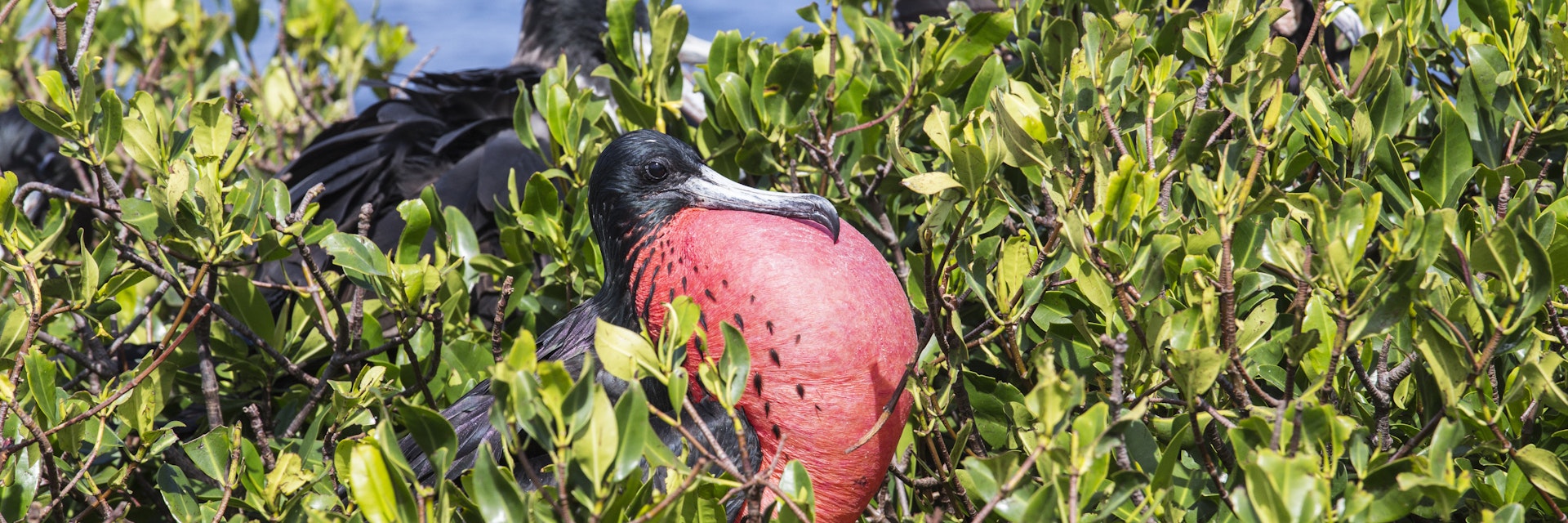Codrington Lagoon National Park protects a vast estuary that supports one of the world's largest colonies of frigate birds. More than 2500 of these black-feathered critters roost amid the scrubby mangroves. The birds’ nesting sites are abuzz with squawking, and the sight of all those blood-red inflating throat pouches is mesmerizing. The lagoon can only be visited by licensed sea taxi from the Codrington jetty. Make arrangements at least a day in advance through the tourist office.
The most popular time to visit the rookery is during the mating season, from September to April (December is peak time). While the male frigate birds line up in the bushes, arch their heads back and puff out their pouches with an air of machismo as part of the elaborate courtship rituals, the females take to the sky. When one spots a suitor that impresses her, she’ll land and initiate a mating ritual. After mating, a nest is built from twigs that the male gathers. The female lays a single egg that both birds incubate in turn. It takes about seven weeks for the chick to hatch, and nearly six months for it to learn to fly and finally leave the nest.
Among the other bird species inhabiting the lagoon are pelicans, terns and gulls, as well as such endemic critters as the tropical mockingbird, the Christmas bird and the endangered West Indian whistling tree duck.
Sea-taxi tours to the nesting site in the upper lagoon take about 90 minutes. If you want to be dropped off at a beach rather than return to the jetty, figure on paying an extra US$12. The national park admission fee is payable at the office near the jetty.

